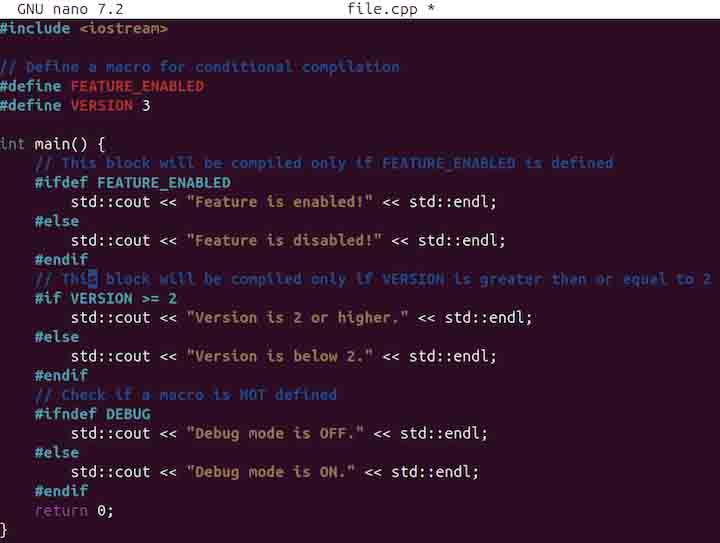
ifnames Command in Linux
The ifnames command in Linux extracts CPP conditionals from source files. The CPP (C PreProcessor) conditionals are directives used in C or C++ code to include or exclude parts of code based on conditions. C PreProcessor processes these conditions before actually compiling the code. This helps conditionally compile the code based on the platform.
The common CPP directives include −
- #if
- #elif
- #ifdef
- #ifndef
The ifnames command scans for these directives in the code.
Table of Contents
Here is a comprehensive guide to the options available with the ifnames command −
- Prerequisites to Use ifnames Command
- Syntax of ifnames Command
- Options of ifnames Command
- Examples of ifnames Command in Linux
Prerequisites to Use ifnames Command
The ifnames command is a part of the autoconf package and may not be available by default on Linux distributions.
To install autoconf on Ubuntu, Kali Linux, Raspberry Pi OS, Debian, and Debian-based distributions, use the command given below −
sudo apt install autoconf
To install it on Arch Linux, use −
sudo pacman -S autoconf
To install it on CentOS, use the following command −
sudo yum install autoconf
To install autoconf on Fedora, use the following command −
sudo dnf install autoconf
To verify if the ifnames command is installed or not, use the following command −
ifnames --version

Syntax of ifnames Command
The syntax of the Linux ifnames command is as follows −
ifnames [options] [file]
The [options] field is used to specify the options and [file] field is used to specify the source files from which CPP conditionals need to be extracted.
Options of ifnames Command
The options of the ifnames command are listed below −
| Flags | Options | Description |
|---|---|---|
| -h | --help | To display the help related to command |
| -v | --version | To display the command's version |
Examples of ifnames Command in Linux
This section demonstrates the usage of the ifnames command in Linux with examples.
For the examples, the following C++ sample code is being used −

Extracting the CPP Conditionals of a Source File
To extract the CPP conditionals from a C or C++ source file, use the ifnames command with the code file name −
ifnames file.cpp

The output lists all the CPP conditionals used in the code as shown in the above image.
Extracting the CPP Conditionals of Multiple Source Files
To extract the CPP conditionals of multiple source files, use the ifnames command in the following way −
ifnames file.cpp file.c

The output shows each CPP conditional along with the name of the file that contains it.
Displaying Help
To display help related to the ifnames command, use the -h or --help option −
ifnames -h
Conclusion
The ifnames command in Linux is used to extract the CPP conditionals from one or more source files. It is a handy tool to understand the code CPP conditionals. It is a part of the autoconf package. To use the ifnames command, the autoconf package must be installed.
In this tutorial, we explained the ifnames command, its installation, syntax, options, and usage in Linux with examples.